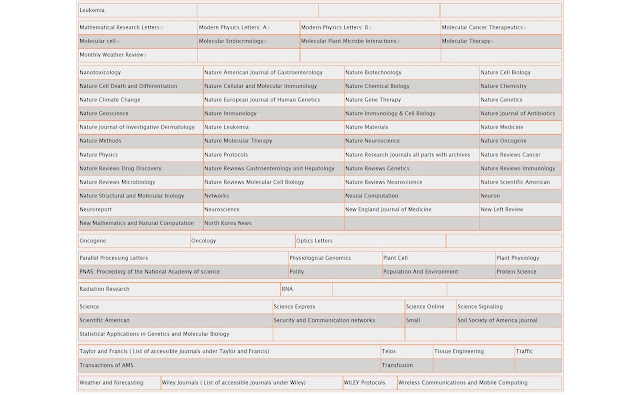Hello, traveller.
This is a step by step guide for accessing the online library resources offered by Jawaharlal Nehru University (JNU).
DISCLAIMER:
1. Whatever I am writing here, I am pulling from my own experiences as a student. Things might be different for you. This is an independent post, by which I mean that I am not writing this under the direction or supervision of any authority.
2. If you encounter the following page (or some version of it) while trying to follow the given steps...
 |
| The browser prompts you that the connection is not private. |
...click "Advanced". Then click on some variation of the "accept risk and continue" option.
3. I am using Google Chrome as my browser. You may use any browser of your choice.
With the disclaimers out of the way, let's begin.
Step 1. Make sure you have your CIS ID and password.
The Communication & Information Services (CIS) provides every student with a CIS ID and password via SMS. Please be advised that this process can take time and you might have to wait for a while.
But if your classmates have received their credentials, and you are an anxious butterfly like me, feel free to contact the CIS via email (director_cis@mail.jnu.ac.in) and convey to them your situation. They are very helpful and will get back to you shortly.
Step 2. Visit https://ezproxy.jnu.ac.in/login . You will be greeted with this screen.
 |
| Screenshot of ezproxy.jnu.ac.in/login |
Enter your user ID and password. Click the yellow "Login" button.
Step 3. Behold the treasure that has been made available to you. Note the heading "Gateway to E-Resources @ JNU".
 |
| Screenshot of the Fulltext Databases when you successfully log in |
 |
| Screenshot of the list of the E-Journals when you successfully log in |
 |
| Screenshot of the list of the E-Journals when you successfully log in - Continued |
...and the list goes on.
Step 4. Click on a database of your own choice.
Keep in mind that some of these databases/websites will ask you to make a separate account and/or install a software.
Here, I am using JStor as an example, partly because it is hassle-free.
Clicking on the JStor link (located at the bottom of the Fulltext Databases section) will land you here:
Note the URL in the address bar and the "Access provided by जवाहरलाल नेहरू विश्वविद्यालय" message at the top of the page. These indicate the fact that you are using the JStor website via JNU's proxy server and that the university has granted you access to the website.
 |
| Screenshot of the top section of the browser window when one accesses the JStor homepage after following the aforementioned steps. |
Although there is the option of "Register" and "Log in" at the top right corner of the screen, you do not need to do either of those things for downloading an article.
If you wish to save an article online for future references, and not download it in your system, you must register/log in.
Step 5. Type in your keyword and press the enter key. Alternatively, you can click on the magnifying glass icon at the right of the text field.
Something like the following screen will appear.
Here, you can use a number of options given on the left-hand side to filter or narrow the search results.
Step 6. Click an article of your choice to view it in a reading window (see image below). Or directly download it using the red "Download" button.
It is possible that some of these articles may not come with the "Download" option on the right-hand side. This can happen if the university has not subscribed to that particular article/book/resource.
There are many options you can explore, the most important of them being the "Cite this item" on the left-hand side. The red "Download" option is available on the upper right-hand side of the page.
Click on the download option. You will be prompted to accept the terms and conditions of the website. Click on "Accept and download". Your article will either start downloading or open in a new browser tab depending on your system settings. If the latter happens, you'll have the option to download the file.
Either way, the end product is a pdf file.
Happy reading.
I hope I could be of help.
The End.
P.S.: be sure to ask any questions that you might have. Until next time.





No comments:
Post a Comment
Thank you for reading today's entry. Feel free to leave a comment. I'd love to read your feedback!